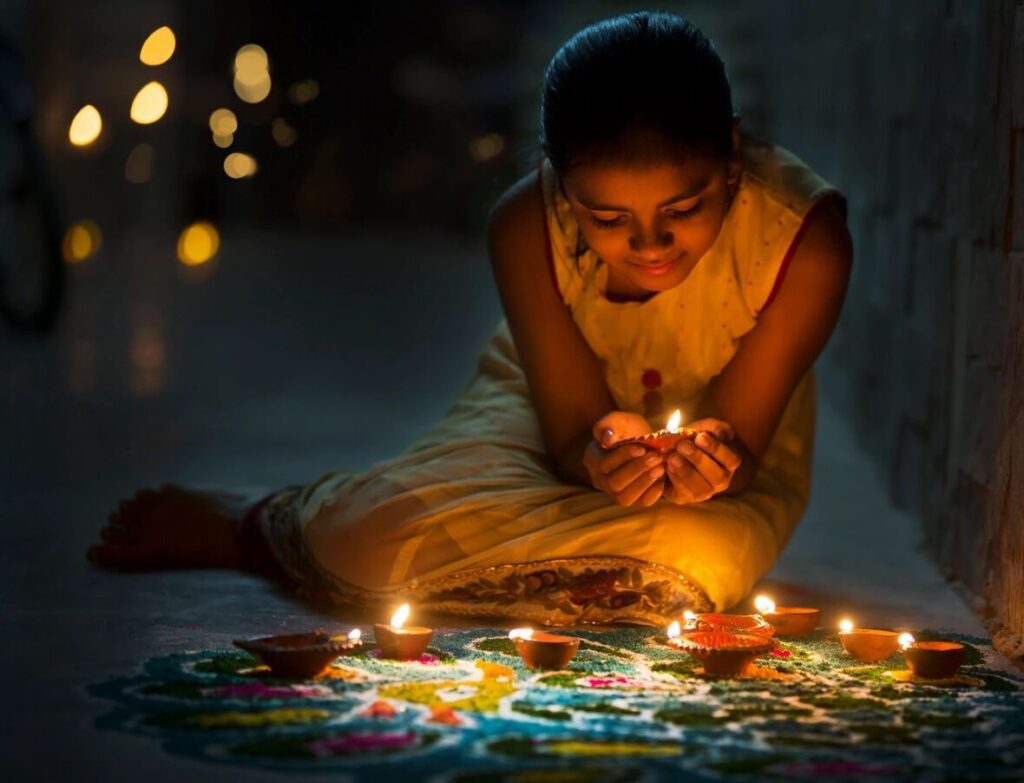Today’s Word from Trinity Keyboardist Sheila Weidendorf…
This past Sunday I led the Adult Education class here at Trinity, and included cross-cultural elements in my presentation, including texts by Kabir, a 15th century mystic and saint from India, whose texts are associated both within the Hindu Bhakti (devotional) traditions and within Sufism. In fact, many devotional songs in the Bhakti traditions are settings of his texts. For today’s missive, I have chosen two such Kabir songs.
Even though Trinity is a Christian community and I provide music and do these little write-ups in service to this truly amazing community, I cannot remove myself from my own cross-cultural proclivities. I have had long-standing and rich experiences within the Christian faith community, from my youth camp summers in the United Methodist Church, or as a liturgical & musical director, as a certified lay minister in the Methodist tradition, to my seminary days where I earned my Master’s degree in Feminist Theology. This rich Christian experience now includes my time with you all here at Trinity, which has been nothing but a blessing for me (so thank you for having me among you!!!).
But I have also made many forays into other spiritual communities, including Taoist, Buddhist, Sufi, and Hindu. In fact, when global pandemics do not have us sheltering in or near home, I am regularly in India and, indeed, have a home there to which I will move when my youngest-of-five children, the only one remaining at home, moves on to her adulthood. My connections to India are deeply personal, musical, and yes, include the spiritual.
You see, God is everywhere, and in everyone and in everything. The miracle of God’s love revealed in the Christ can also be found in everything and everyone – in each springtime blossom, in every thunderstorm, in every cataclysm, and certainly in the human heart. And the heart does not recognize boundaries, borders, nationalities, religious division. The heart knows Love, in as much as it is the human heart that is the locus of the Spirit of God. Thus, the deeper my experience in the spirit life of other communities, the deeper my own experience of Christ among us, within us, all around us. What a gift!
And now for the music. Besides my abiding love of Hindustani Classical music, I also love the ghazals and bhajans and various folk idioms to be found (my experience of India is mostly in the northern part of the country). One of my absolutely favorite singers is Moora Lala. Of Rajasthani descent (my home is in Rajasthan), he resides in the state of Gujarat and is known for the singing of devotional settings of Kabir texts. His voice is wild and pure, a product of the desert which birthed him. I had the unlikely and most stupendous honor a year or two ago of having a private video call Moora Lala concert – which I can truly say was among the highlights of my life thus far.
This song, Banjara, is performed (link below the lyric) with the group Maati Baani (their name means “Language of the Earth”). The text is incredible. We feel the sting of mortality in his words and yet, the immortality of God’s truth and love. No one is spared, says Kabir. As human beings we WILL experience the realities and vicissitudes of human life – “between the layers of truth and untruth,” he puts it. I find this so very, very compelling!
Then he says of God’s work in us, “Our Master has made this body a palace, and played the instrument of breath within.” How marvelous! We are the instruments of God whose very breath plays us into existence. Our work, then, is to keep in tune, in time with God! And more, “Our Master has made this body a garden, and filled it with a bowl of flowers.” Can you not just feel with beauty of our aliveness in God?!?!?
Banjara
The millstone of life goes on moving, Kabir weeps.
Between the layers of truth & untruth,
No one is spared.
The millstone of life goes on moving, Kabir observes.
He who holds the anchor of His name
Will always remain unhurt.
Don’t leave me now, O Breath-
I am a wanderer! Still have to travel distant lands.
O, the one who is asleep,
Awake!
Our Master has made this body like a palace,
O you wanderer,
and he played the instrument of breath within.
Our Master has made this body like a garden;
How he’s filled it with a bowl of flowers.
Says Kabir,
he who follows the truth
with attain the kingdom of immortality.
The second song I am sharing, Moko Kahaan, is by the group Maati Baani in collaboration with Iranian female musicians and other musicians from around the world, as part of their album, “Nomad Songs.” I am so very touched and impressed by this cross-cultural/cross-spiritual musical collaboration that I just HAD to share it with you all!
The text of this song is one that I did, indeed, include in Sunday’s Adult Ed presentation. In this text, Kabir adopts the voice of God, who questions the faithful about their/our search for God. Where is it that we look for God? Does a building really house the spirit of God? Can any four walls truly contain God? In all of the many and beautiful temples and cathedrals and mosques and stupas around the world – human structures consecrated to the expression of the holy – is that where we find God?
Kabir says no. While yes, we can set aside time and space designated for God – and this is a beautiful thing, whether that means building a church or maintaining a daily prayer practice! – God is not a product of our efforts, either to express or contain God. Kabir says that God is quite simply found in faith. God is found, therefore, within US.
Bless you all, and thank God for this precious community.
Moko Kahaan
O Seeker, at which places you are finding me?
I am forever with you!
I am neither at sacred places nor in the statues,
I am neither in temples nor in mosques,
I am neither in Kashi (holy land) nor in Kailash (holy mountain)
If you seek me earnestly,
I will be discovered in a moment!
Listen dear seekers says Kabir,
I am found in FAITH!
Sheila



